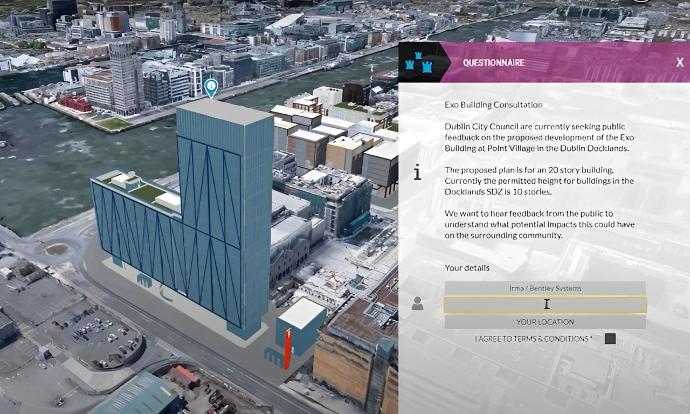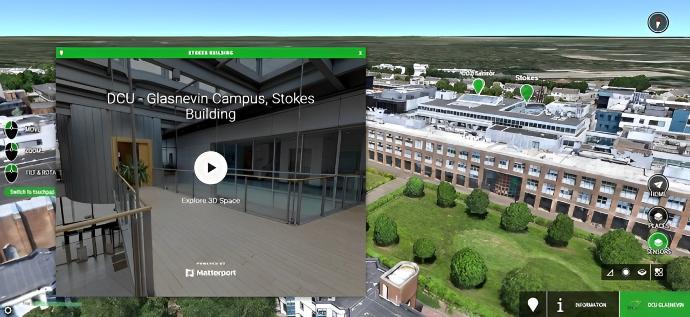Dublin City Council: About our Smart City Programme
Through our established Smart City programme, we support the application of new and emerging technologies – in this case digital twins are an important strategic focus. Over the past number of years, we have been experimenting with a wide range of digital twinning tools and software platforms initially focusing on deploying projects across our Smart Districts (where we accelerate smart city innovation projects as proof of concepts. This included utilising 3D modelling technologies across our Smart Docklands district using drones, building information models (BIM) and LIDAR scanners for surveying, mapping, and data collection. We have also started exploring the application of gaming technologies and platforms (such as Unreal and Unity) to understand their potential to support city planning and engagement. In tandem, we are building up a larger portfolio of connected data streams as the application of Internet of Things devices are rolled out across the city, which can feed into our digital twin platforms and models.
We are beginning to realise a massive opportunity to leverage these local digital twins (LDT) tools to support effective engagement with the key stakeholders and communities on future proposals and investments planned for the city. Through T4R, DCC aims to showcase the value of LDT as a visual tool which can integrate diverse datasets in a unified geospatial platform and able to communicate relevant data insights to key decision-makers, local stakeholders and communities. Its well-placed smart district collaborative programme and long-standing partnerships with Industry and academia contribute to the research and technical expertise needed for LDT design.
History
Our journey began in 2019 when we kicked off a 3D Hackathon (120+ participants) organized by DCC, to help uncover new insights into the potential of 3D models for city planning. We invested in an open-source high value 3D model for the ‘Silicon Docks’ of the city, allowing everyone to access the data as part of a creative commons license. This resulted in many innovative applications and ideas from industry and academia.
At this stage of our digital twin journey, the focus was on development of inspiring use cases to help stimulate demand to invest in a longer-term strategic approach. The following projects have been developed:
- DCC through its Smart City programme also established an innovation partnership with Bentley Systems to explore the potential of using digital twins to support public engagement for future city proposals. A digital twin in this context is a virtual representation of a physical place - so buildings, streets and assets are all digitised into a 3D virtual environment allowing the data to be visualised interactively.

- The partnership with Bentley Systems was further extended to demonstrate the potential of campus digital twins using the Smart DCU sandbox environment and Dublin Fire Brigade for its pre-incident planning and emergency response use cases.

T4R frameworks and resilient pilot action are expected to provide lessons and build local capacities within the organisation to adopt digital twin technology for good. DCC will implement two use cases for its pilot action aiming to forge a better understanding of the value of new proposals for resilient territorial planning. The first use case focuses on a multi-thematic temporal planning experience for everyone to visualise the spatial transformation of the city’s historic Docklands and the second use case highlights the value of ongoing active travel investments at a city-wide scale.